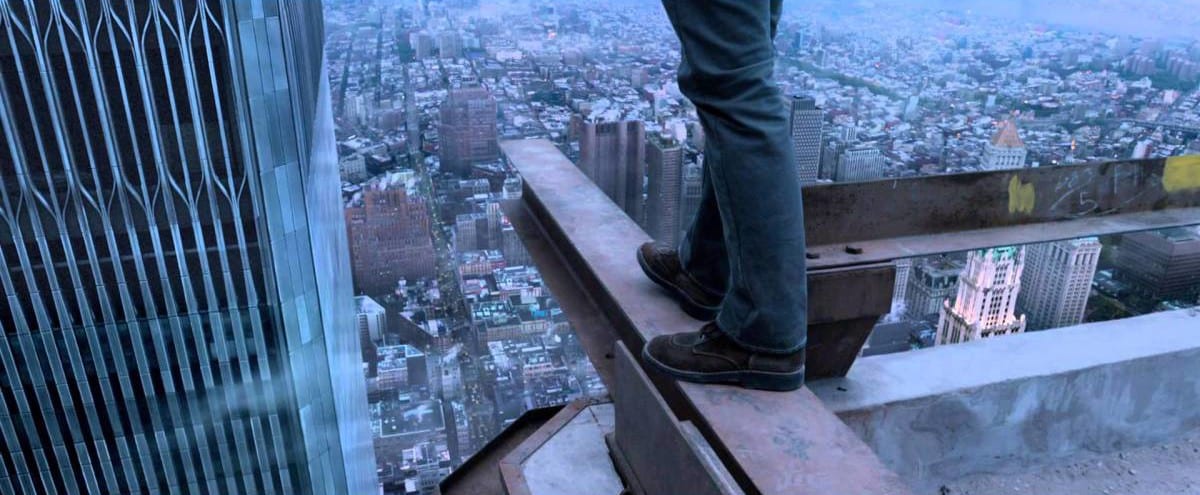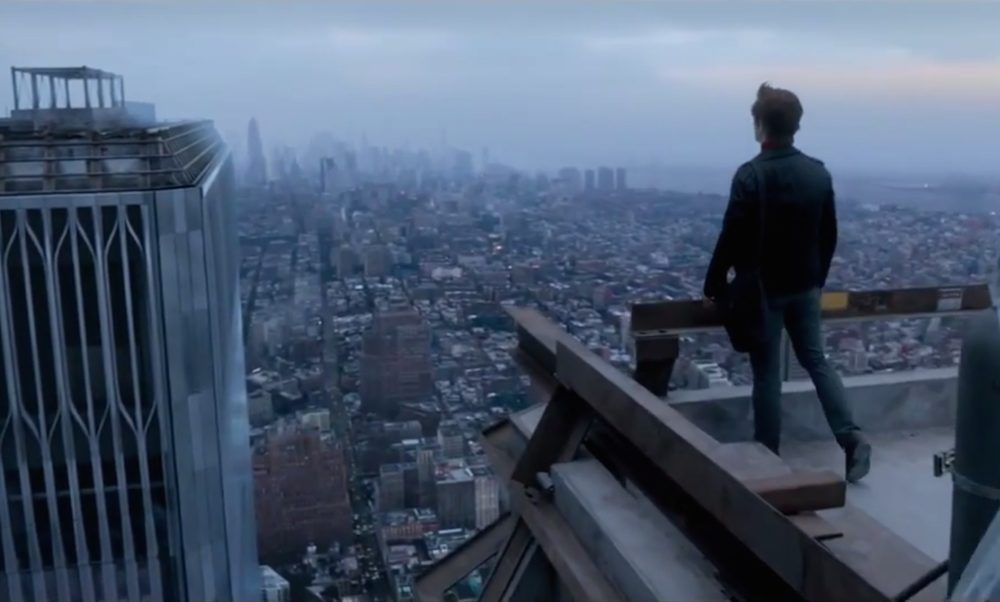MOVIE REVIEW: THE WALK (PG)
The fantastical, somewhat unbelievable, very real facts behind wire walker and “The Walk” subject Philippe Petit and his breathless trip from one twin tower to the other have been covered before in a skillfully constructed documentary called “Man on Wire.” “The Walk” is an Imax-sized dramatization of the same events from the great Robert Zemeckis (“Back to the Future“), and while it is a technical marvel to be sure, something is certainly amiss here. Namely, a 90-minute set-up that isn’t as insightful or as compelling as the components that make up the documentary that came before it.
“The Walk” opens with an excitable Petit (played by Joseph Gordon-Levitt) as he tells the story of his life through flashback. From his youth to his days as a Paris street performer, to his bond with circus performer Papa Rudy (played by Ben Kinglsey), to the details behind his infamous, nausea-inducing, altogether spectacular twin towers wire walk in 1974.
Levitt’s performance is a bit of a high wire act in of itself. His energy conveys the passion, eccentricities, artistic integrity, swagger, and somewhat assholish nature of this complicated man. The French accent certainly leaves a bit to be desired, but Levitt gives it his all, and he’s particularly effective during the wire-walking scenes—not only bringing startling physicality to these sequences but a commanding internal complexity as well. In short, when he’s up there, silent, walking through the clouds, he really does appear to be one with the wire. Obviously, Levitt is complemented by truly remarkable visual effects here, but his commitment is every bit as vital to the effectiveness of these unforgettable moments.
The rest of the cast is a mixed bag. The standouts are Kinglsey as Petit’s warm but tenacious mentor and James Badge Dale as a lively, fast-talking pawn shop proprietor who is eager to aid Petit in obtaining his seemingly impossible goal.

Like Petit, Zemeckis is a consummate showman. Again, “The Walk” is a technical marvel, but if you take away a lot of the visual flair, the first 90 minutes of the picture are surprisingly bland. And aside from a pleasant father-son dynamic between Petit and Rudy, there’s a certain level of artificiality when it comes to the rest of the relationships in this film.
“The Walk” earnestly attempts to capture the innocence of the ’70s, and once Petit and his crew engage in a caper of sorts, there’s a breezy, carefree quality to the film that might remind one of Soderbergh’s “Ocean’s 11” and Spielberg’s “Catch Me if You Can“—only here there are bursts of humor and odd touches that .
Furthermore, Zemeckis lends the movie a fantasy element that almost dares you to forget that what you’re watching did, in fact, happen, and that really hurts the overall tenor of the film. This is to say nothing of the intrusive, virtually unnecessary narration by Levitt. He doesn’t need to tell us what’s going on when we can see it as clear as day.
As problematic as “The Walk” is, and despite the fact that as a whole it isn’t as compelling as James Marsh’s “Man on Wire,” it has to be said that the last 35 minutes of this picture are undeniably breathtaking and more than worth plunking down the extra cash for an Imax ticket. In exhilarating fashion, Zemeckis delivers a real showstopper. And what’s more, in addition to capping off this movie by showing viewers to what lengths this crazed, passionate artist would go to in an effort to achieve his dream, “The Walk” also ends on a heartfelt note that serves as a powerfully moving tribute to the twin towers and New York City.




